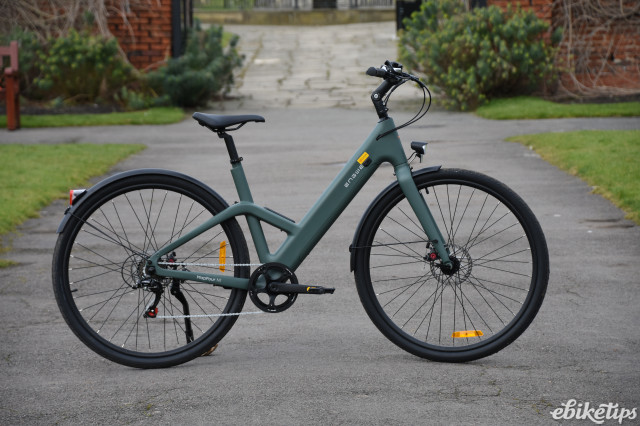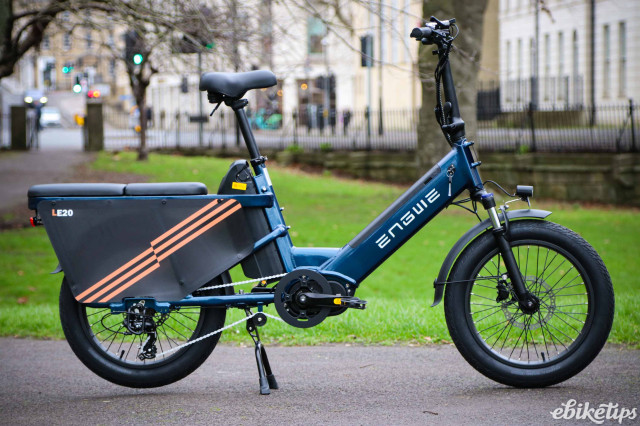Amazon has drawn flak for selling products that can be used to derestrict e-bike motors. So-called e-bike tuning kits allow speeds greater than the 15.5mph (25km/h) limit imposed on electric bikes that can be ridden without a licence.
One of the requirements to qualify as an electrically-assisted pedal cycle (EAPC) – for which a rider does not need tax or insurance – is that electrical assistance must cut off when the vehicle reaches 15.5mph.
If an e-bike offers power assistance above this speed, legally it is treated as a moped. Manufacturers therefore employ software to ensure their vehicles comply.
However, humans being humans, some want to bypass these restrictions and this has resulted in a small market for products designed for ‘chipping’ or ‘tuning’ e-bikes so that they can be ridden with power assistance at higher speeds.
The Times identified five websites selling such devices and approached them to make a purchase. The newspaper said that while there were warnings on all five sites that e-bikes could only be used on private land after being upgraded, none mentioned this when contacted by email or phone to request a kit for an e-bike that would be used for commuting.
The article highlights Amazon in particular where a chipping device to “completely unlock” a Bosch motor is listed for £151 with a rating of 4.5 stars out of five.
Amazon responded by pretty much pointing the finger at independent businesses offering goods via its Marketplace platform.
“Third party sellers are independent businesses and are required to follow all applicable laws, regulations and Amazon policies when listing items for sale in our store,” said a spokesperson.
It’ll be interesting to see whether there’s any follow-up to that. When Electrical Safety First pointed out that Amazon was selling “highly dangerous” e-bike chargers recently, the retail giant ultimately removed those listings.
‘Irresponsible and dangerous retailing’
Roger Geffen, the policy director of national cycling charity Cycling UK, seemed unimpressed with the situation.
“Illegal adaptations where you no longer need to pedal or where the motor is overpowered or goes faster than 15mph, aren’t just a risk to the rider and others, but mean you’re riding a motorbike,” he said. “You would therefore be committing a criminal offence riding one on UK roads without insurance, licence plates and a motorbike helmet.”
A Met Police spokesperson said: “We are aware that many people have modified their bikes through home conversions and our Cycle Safety Team runs regular enforcement operations to tackle illegal e-bike riders.
“A rider of an illegal e-bike could be dealt with for riding with no insurance and, depending on what driving licence they had, might be reported for driving not in accordance with their licence. That could mean six points or more on their current or future driver’s licence and be fined up to £300.”
Geffen continued: “The ready availability of illegal conversion kits online is a concern. While buyers should do their research, there should also be a burden of responsibility on online retailers to make sure they’re doing their due diligence and only selling legal equipment with all necessary warnings about how to fit these kits safely and legally.”
David Davies, the executive director of road safety charity the Parliamentary Advisory Council for Transport Safety, said: “It’s ridiculous that you can sell these things but the offence is on the user. It’s irresponsible and dangerous retailing. There’s only one purpose. I know they pretend the devices are for off-road but it’s far fetched.”
Davies’ comments recall a recent case where Mate Bike were prosecuted for their 750W 20mph e-bikes despite arguing they were intended for off-road use on private land.
‘Anti-tuning’ efforts
E-bike manufacturers aren’t too happy with this kind of thing either. Just over a year ago, the Confederation of European Bicycle Industry (CONEBI) released a statement pledging to try and prevent the hacking of e-bikes to increase their speed.
It said that tampering kits could damage the drive system or the bike itself and riders also risked losing their guarantee and invalidating their warranty claims.
CONEBI president Erhard Büchel added: “We condemn very strongly the sales of tampering kits which endanger the safety of consumers as the e-bike is not designed for such an increased speed. We therefore call upon the European legislators to clearly forbid the sale, application and use of tampering equipment.”
One of the commitment's signatories was Bosch. The latest generation Bosch motors will switch to the quite wonderfully named ‘limp home mode’ where tampering is detected, reducing the power to the motor. This can be reset by the owner, but after multiple instances it will require a Bosch dealer to restore normal power.
“We are committed to responsible e-biking,” said Bosch eBike Systems managing director, Claus Fleischer. “This is why we’re persistently fighting the practice of tuning and are continuing to develop our technology further.”





